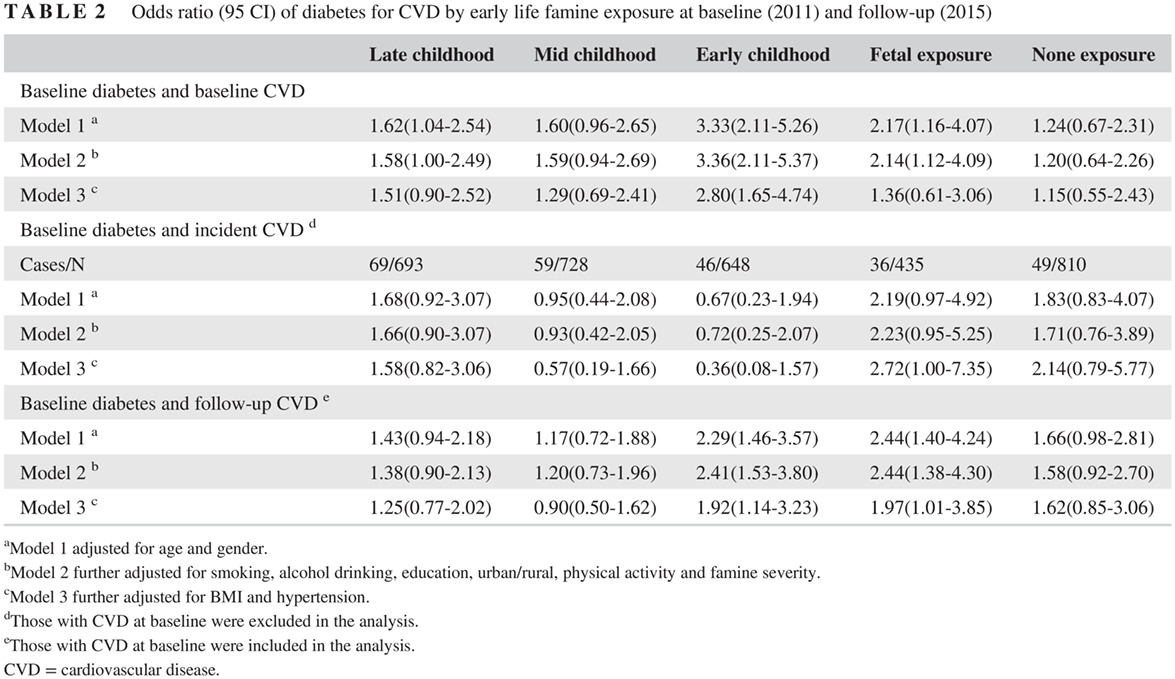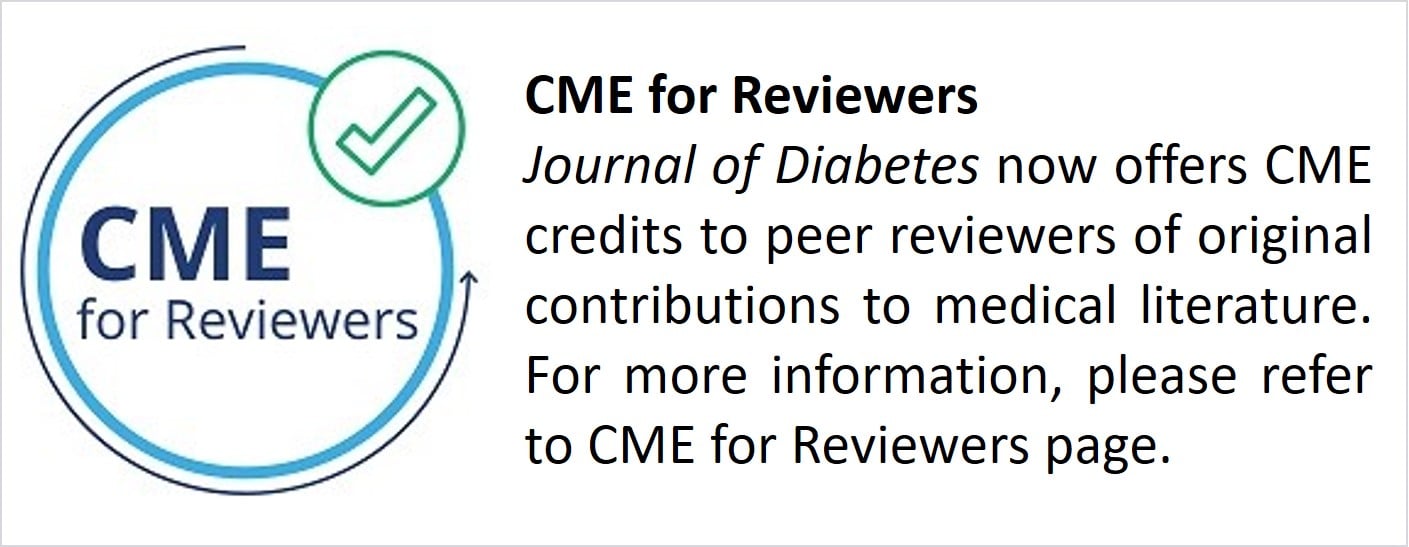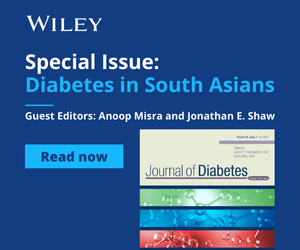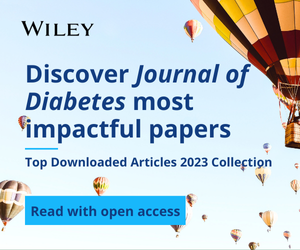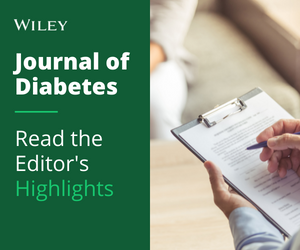Journal list menu
Export Citations
Download PDFs
Cardiovascular Diseases and Diabetes
Which is the worst risk factor for the long-term clinical outcome? Comparison of long-term clinical outcomes between antecedent hypertension and diabetes mellitus in South Korean acute myocardial infarction patients after stent implantation
长期临床结局最糟糕的风险因素是什么?韩国高血压与糖尿病患者因急性心肌梗死接受支架置入术后的长期临床结局比较
- First Published: 17 August 2019
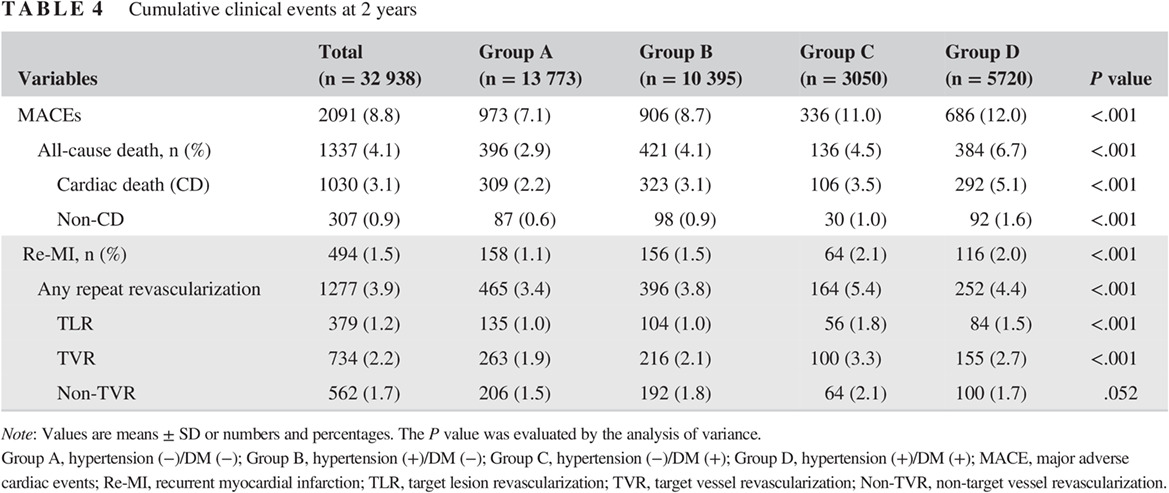
Highlights
- Hypertension and diabetes are well-known major risk factors for coronary heart disease and diabetes is associated with increased need for repeat revascularization after stent implantation.
- In this study, the cumulative incidences of any repeat revascularization, target lesion revascularization (TLR), and target vessel revascularization (TVR) in the diabetes only group were significantly higher than the hypertension only group after risk adjustment.
- However, the cumulative incidences of major adverse cardiac events (MACEs), all-cause death, and recurrent myocardial infarction (Re-MI) were similar between these two groups.
Atherosclerotic disease burden after bariatric surgery in patients with obesity and type 2 diabetes
肥胖和2型糖尿病患者减肥手术后动脉粥样硬化疾病的负担
- First Published: 29 December 2020
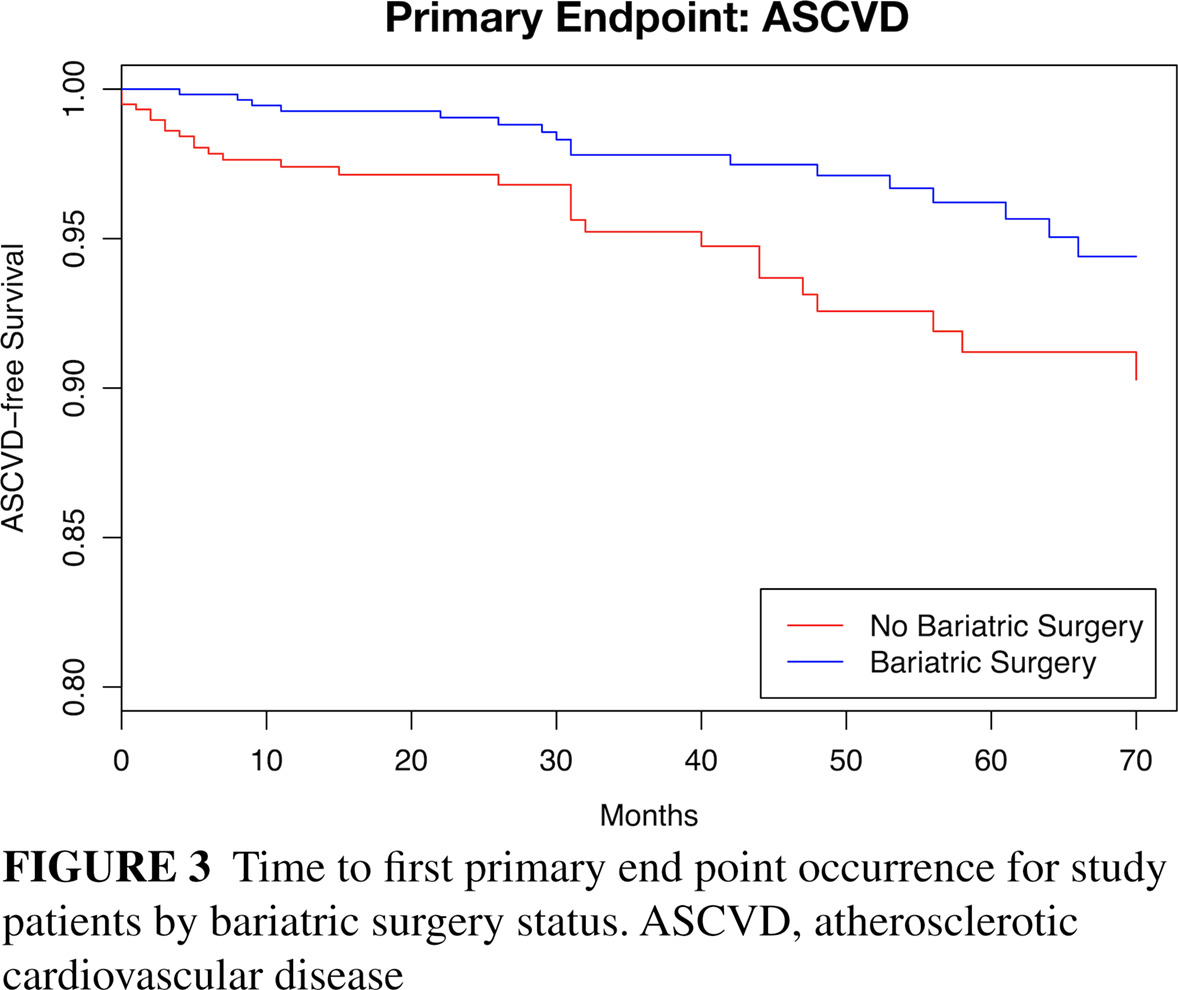
Highlights A nested, nationwide, propensity-matched cohort study was carried out using the Clinical Practice Research Datalink with 1186 patients with no past history of ASCVD, half of whom had undergone bariatric surgery. Bariatric surgery was associated with improved ASCVD outcomes and lower mortality, highlighting a potential prognostic role of the surgery in patients with obesity and T2DM.
Gestational hyperglycemia and the risk of cardiovascular diseases among elderly Chinese women: Findings from the REACTION study
妊娠高血糖与中国老年女性心血管疾病风险:来自REACTION研究发现
- First Published: 24 August 2021
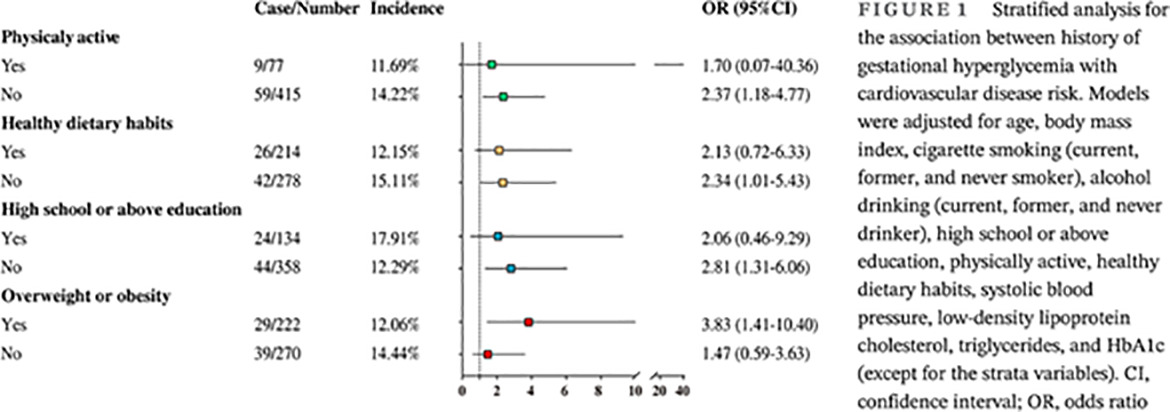
Highlights
- Even without progressing to type 2 diabetes, gestational hyperglycemia is associated with an increased risk of cardiovascular disease (CVD).
- The association between gestational hyperglycemia and CVD risk could be modified by lifestyle factors and hypertension.
- Subsequent blood pressure management and lifestyle intervention for women with gestational hyperglycemia are important approaches to prevent CVD.
Higher blood pressure predicts diabetes and enhances long-term risk of cardiovascular disease events in individuals with impaired glucose tolerance: Twenty-three-year follow-up of the Daqing diabetes prevention study
- First Published: 16 December 2018
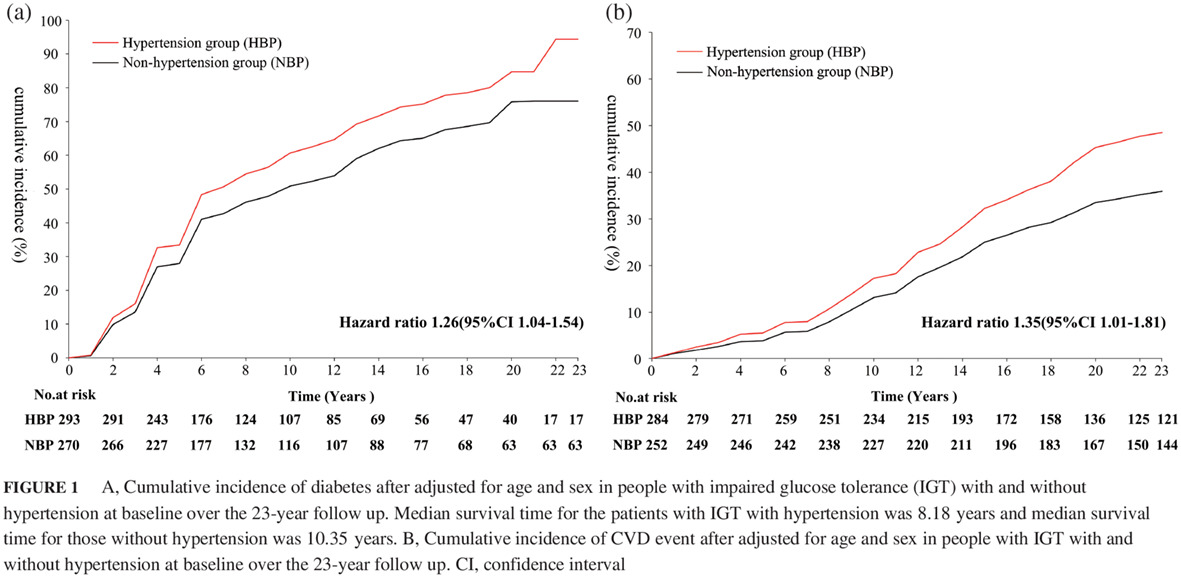
Highlights
- The results of this paper is a post-hoc analysis of the original Da Qing Prevention Study.
- The findings showed that hypertension per se not only led to a higher incidence of cardio-cerebral-vascular disease, but also increased the risk of cardiovascular disease events by accelerating the development of diabetes among subjects with impaired glucose tolerance.
- It suggested that an individualized intervention targeting to control hypertension together with preventing the development of diabetes may favor the reduction of the diabetes-related macro-complications among the impaired glucose tolerance population with hypertension.
Early life exposure to 1959-1961 Chinese famine exacerbates association between diabetes and cardiovascular disease
早年生活经历过1959-1961年中国饥荒可加剧糖尿病与心血管疾病之间的关联
- First Published: 07 August 2019
Paradigm shift in the management of DM & CVD—preventing the next CV event
DM和CVD管理的范式转变——预防下一次CV事件
- First Published: 23 June 2020
Cardiovascular disease and risk of incident diabetes mellitus: Findings from the Hispanic Community Health Study/Study of Latinos (HCHS/SOL)
心血管疾病与糖尿病发病风险:拉美裔社区健康研究/拉丁裔研究(HCHS/SOL)的研究结果
- First Published: 18 September 2021
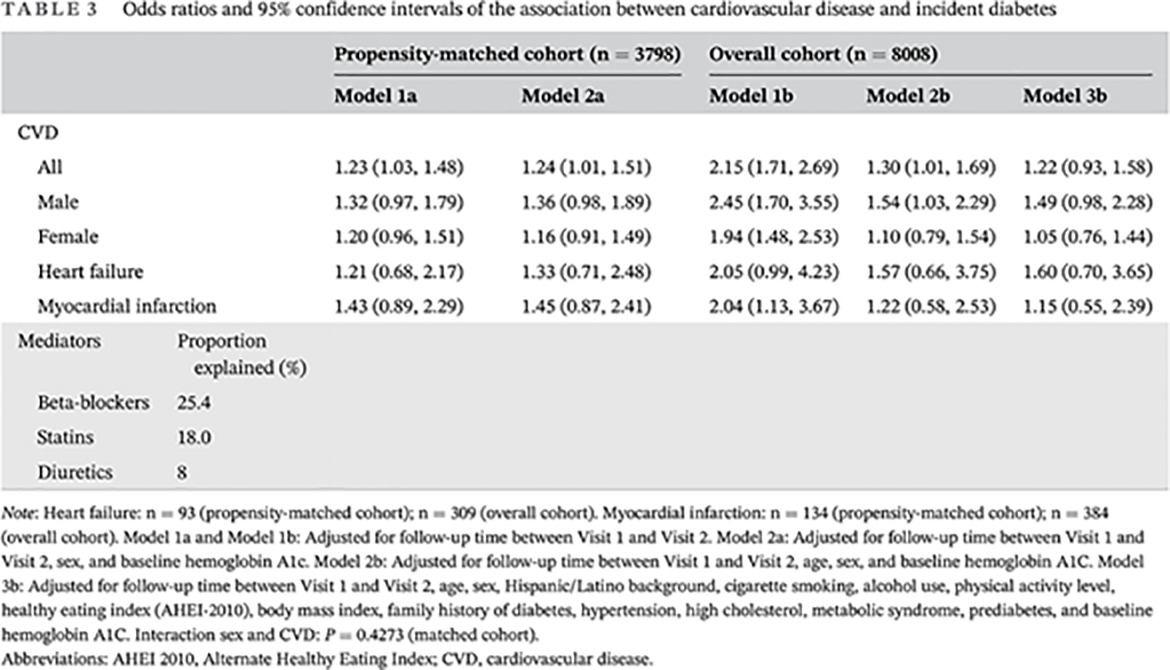
Highlights
- Prior studies have reported an association between cardiovascular disease and risk of incident diabetes mellitus. However, factors that may explain the association remain unclear.
- Using propensity score matching, we reinforced the concern that cardiovascular disease may increase the risk of developing diabetes mellitus.
- We further showed that the association between cardiovascular disease and incident diabetes mellitus was partially explained by cardiovascular medications such as beta-blockers, statins, and diuretics.




1753-0407.cardiovascular-diseases-and-diabetes.cover.gif)
